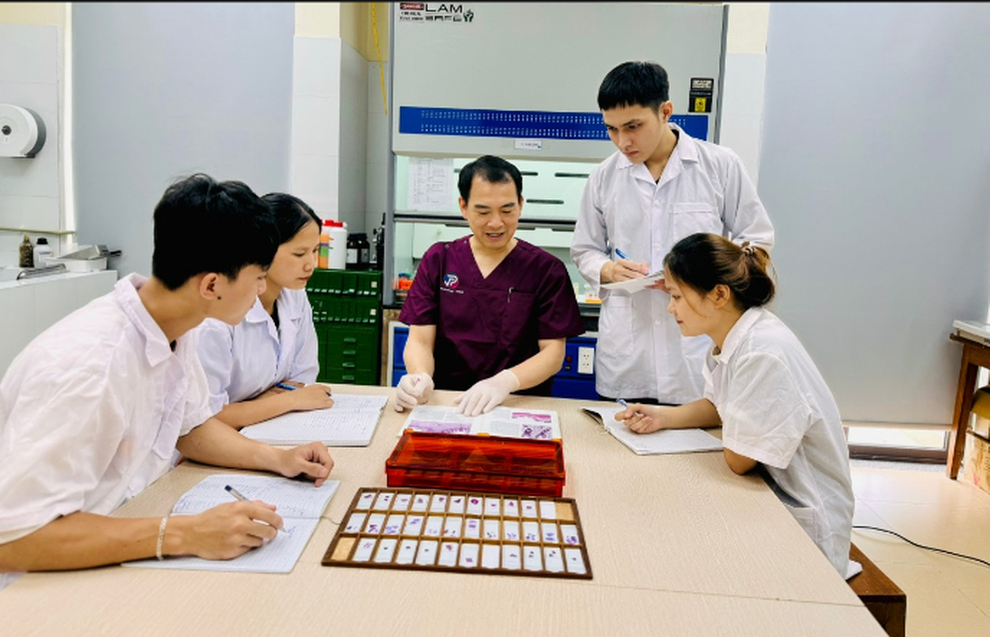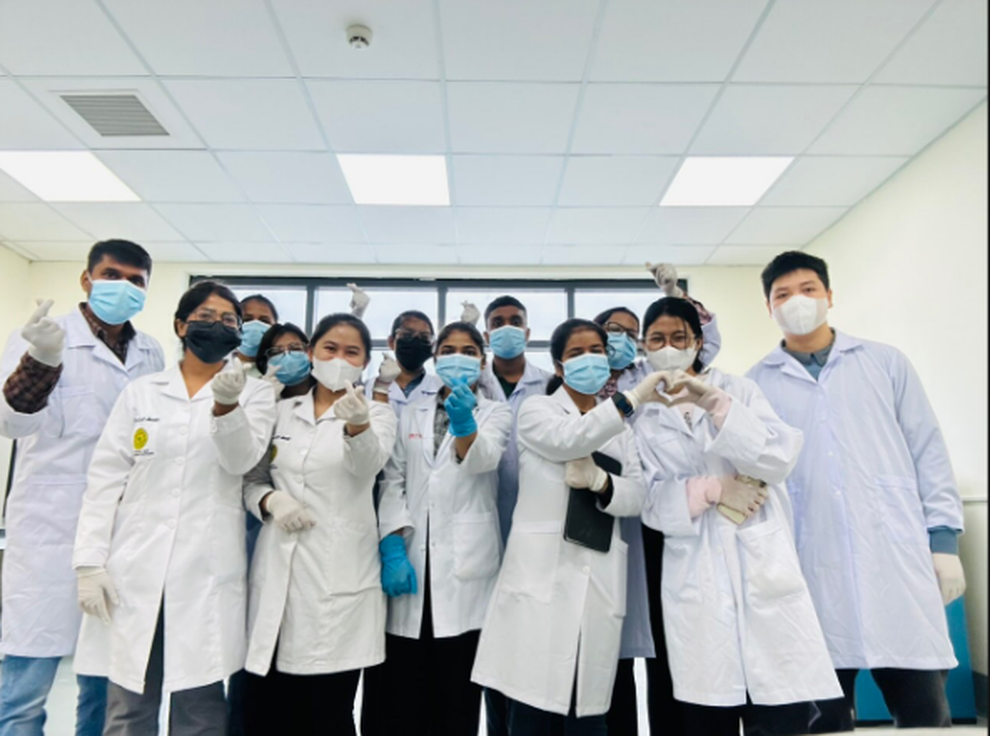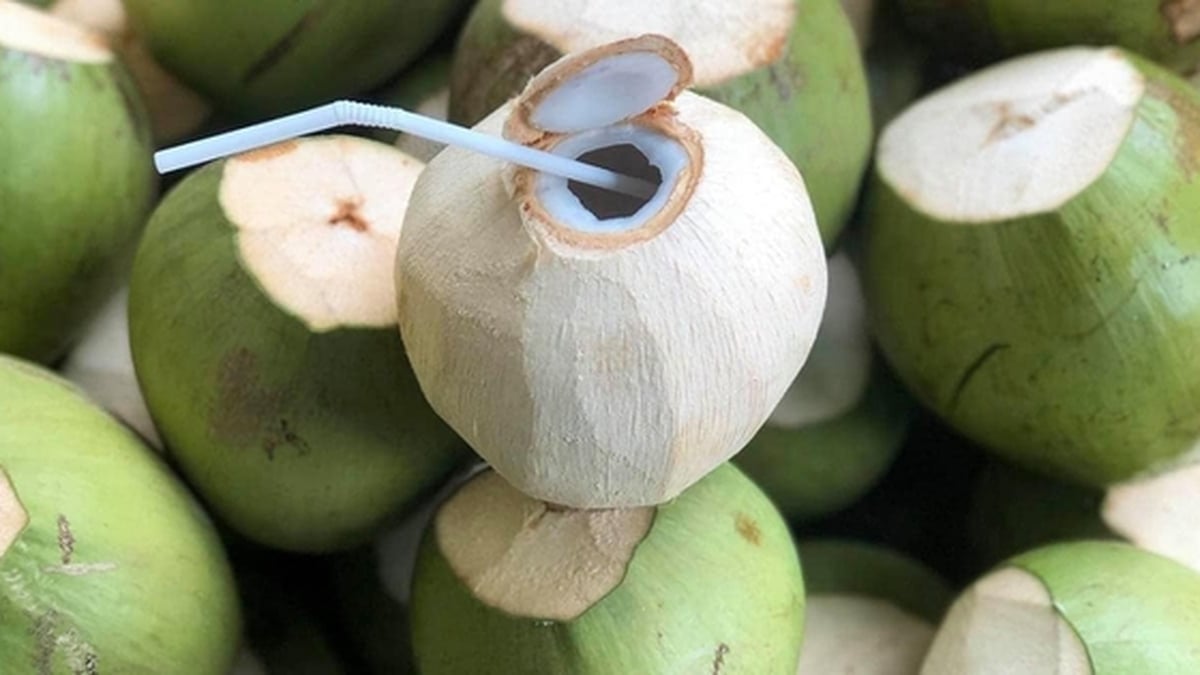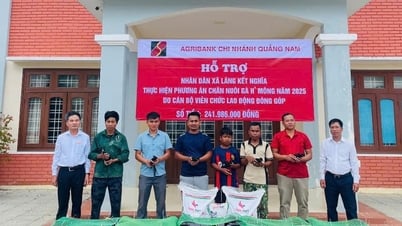Climbing the SCImago rankings in 2025
The SCImago Institutions Rankings (SIR) was established in 2009 by SCImago (headquartered in Spain).
SCImago provides information on the quality of scientific research of countries, research institutions, and the prestige of journals through the analysis of indicators based on the Scopus database built by Elsevier Publishing House, Netherlands, since 2004.
In addition, SCImago also builds a ranking system to evaluate the scientificresearch capacity of universities and research institutes worldwide.

Associate Professor, Dr. Bui Tran Anh Dao - Head of the Faculty of Veterinary Medicine, Vietnam National University of Agriculture - guides students in scientific research (Photo: Provided by the school).
Among the universities and research institutes ranked in 2025 in Vietnam, Vietnam National University of Agriculture ranked 5th, up 2 places compared to 2024. In particular, the Academy ranked 6th in innovation capacity; 13th in social impact and 17th in research capacity.
Also in Vietnam, the Vietnam National University of Agriculture ranks first (number 1) in the field of veterinary medicine; 15th in the fields of agriculture, biological sciences, biochemistry, genetics and molecular biology, and 25th in environmental sciences.
The Veterinary training program at the Academy has been developed and reviewed annually to achieve core competencies according to the World Organization for Animal Health (OIE), veterinary training schools in Asia, Southeast Asia and practical requirements of the Veterinary industry in Vietnam.
The program includes a full range of general, basic, and specialized knowledge and skills in the veterinary field; soft skills, information technology, foreign languages, economic management, and the environment. In particular, the veterinary training program also increases the time for clinical, non-clinical, and field production skills.

Over 90% of Veterinary students have jobs within 12 months of graduation with attractive salaries of 10-20 million VND (Photo: Provided by the school).
Veterinary medicine is the study of applying medical principles in diagnosing and treating diseases in animals: livestock, poultry, pets, zoo animals, and wild animals.
Studying Veterinary Medicine, students will be equipped with knowledge of epidemiology, clinical manifestations, specialized diagnostic techniques, treatment and prevention, surgery, pathology and laws related to disease prevention. In addition, students are equipped with clinical and non-clinical skills, technical procedures in diagnosing and treating diseases in livestock, preventing animal diseases; consulting skills on techniques, technology and business in the field of Veterinary Medicine in the direction of bringing economic benefits...
In particular, Veterinary students are also able to apply advanced veterinary science and technology advances in the field of veterinary vaccine and pharmaceutical production; office software and statistical analysis software for data storage, statistical analysis, report preparation, report presentation; and organization and operation of veterinary clinics.
With knowledge and skills equipped in a systematic and scientific manner, over 90% of Veterinary students have jobs within 12 months after graduation with attractive salaries of 10-20 million VND.
The Academy focuses on building spacious facilities with modern theoretical classrooms and laboratories with advanced equipment to serve the training and scientific research of lecturers and students of Veterinary Medicine.
The Academy established a Veterinary Hospital with a total investment of nearly 100 billion VND on a campus of more than 5 hectares to care for and treat livestock diseases, while creating conditions for students to practice and intern in the most modern and professional environment in the North.
In which, the Key Laboratory of Veterinary Biotechnology (ISO 17025 certified). This is the first laboratory of the Vietnam Academy of Agriculture to achieve ISO certification, is a center for in-depth research on topics of the Veterinary industry, and is a place that provides diagnostic testing services for diseases of livestock, poultry, wild animals and aquatic animals.
The Veterinary Key Biotechnology Laboratory is also the address for implementing scientific and technological tasks such as international cooperation projects, state-level and ministerial-level projects, etc., supporting the diagnosis and testing of specimens for many localities and enterprises in the veterinary field and related fields, and actively participating in animal disease prevention campaigns of the Department of Animal Health and localities.
According to the SCImago 2025 assessment, research institutions around the world, including universities and research institutes, are ranked based on three main criteria:
- Research performance (accounting for 50%): Measuring research performance through indicators such as the number of published articles, citation rate, internationalization level of research, quality of journals (based on Scopus SIR index).
- Innovation capacity (30%): Assess the impact of research on technological innovation, the number of patents and the citation level of patents.
- Social influence (20%): The organization's presence and influence on the web, including the number of links to the organization's website and its online visibility.
Source: https://dantri.com.vn/giao-duc/hv-nong-nghiep-dao-tao-nganh-thu-y-hang-dau-viet-nam-theo-bxh-scimago-2025-20250610193947969.htm




![[Video] Forecast of benchmark scores of mid-ranking universities to drop sharply](https://vphoto.vietnam.vn/thumb/1200x675/vietnam/resource/IMAGE/2025/7/18/be12c225d0724c00a7e25facc6637cb9)


























































































![[Infographic] In 2025, 47 products will achieve national OCOP](https://vphoto.vietnam.vn/thumb/402x226/vietnam/resource/IMAGE/2025/7/16/5d672398b0744db3ab920e05db8e5b7d)







Comment (0)